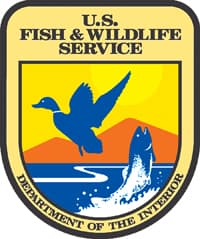National Fish Passage Program Works with Midwest Partners to Solve Fish Barrier Problems, Awards $1.4 Million
OutdoorHub 08.20.13

The U.S. Fish and Wildlife Service is pleased to announce that $1.4 million in 2013 will be awarded through the National Fish Passage Program to support projects in the Midwest Region including Iowa, Michigan, Minnesota, Missouri, and Wisconsin. Funding will support the removal of 10 fish passage barriers, reconnecting more than 160 stream miles, as well as engineering studies, surveys and assessments, and monitoring activities. Projects are supported by an additional $3.62 million in matching funds.
Construction of millions of culverts, dams, dikes, water diversions, and other artificial barriers are changing the natural features of rivers and streams by impounding and redirecting water for flood control, drinking water, electricity, irrigation, and transportation. Balancing the importance of stream connectivity for local fish species with the construction of these structures is an ongoing conservation challenge.
Through the National Fish Passage Program, the Service and its partners are working to reverse the harmful impacts of artificial barriers to native fish species and the aquatic environment. The Fish Passage Program uses a voluntary, non-regulatory approach to work with municipal, State, Tribal, Federal and non-governmental agencies to reopen and improve aquatic habitats in streams and rivers. The program provides funding and technical expertise to partners to remove or bypass dams and other obstructions and replace or improve culverts under roads or railroad tracks to allow fish to swim through.
2013 Fish Passage Program projects in the Midwest include:
Michigan – $50,000 on-the-ground federal funds and $150,000 in partner contributions to replace a culvert structure with a channel spanning bridge in the Maple River Watershed. This will eliminate an estimated five tons of sediment loading annually and reconnect 18 stream miles.
Minnesota – $130,000 on-the-ground federal funds and $617,000 in partner contributions to replace three culverts with a single span bridge on the Turtle River. Completion of this project will reduce sediment input into the river system and reconnect more than 13,000 acres of wetland and lake habitat, as well as 30 stream miles.
Missouri – $125,000 on-the-ground federal funds and $170,000 in partner contributions to replace a low water crossing over the Niangua River to benefit threatened Niangua darter in Dallas County, which will reconnect 14 stream miles.
Wisconsin – $180,000 on-the-ground federal funds and $315,000 in partner contributions to provide fish passage at the Estabrook Dam on the Milwaukee River, which will reconnect 45 stream miles.
In many cases, these funds go directly to the replacement of deteriorating structures, which helps to improve local infrastructure while supporting local economies. The goal of the program is to restore populations of native fish and other aquatic species to self-sustaining levels by reconnecting habitat that has been fragmented by artificial barriers and diversions.
Since its inception in 1999, the National Fish Passage Program has removed or bypassed 1,345 barriers, restoring access to 20,229 stream miles and 155,454 acres of wetlands. The Program has also leveraged an average of more than three dollars for every project dollar spent through its partners.
For more information about the Fish Passage Program, visit our home page at:
http://www.fws.gov/midwest/fisheries/fish-passage-program.html

